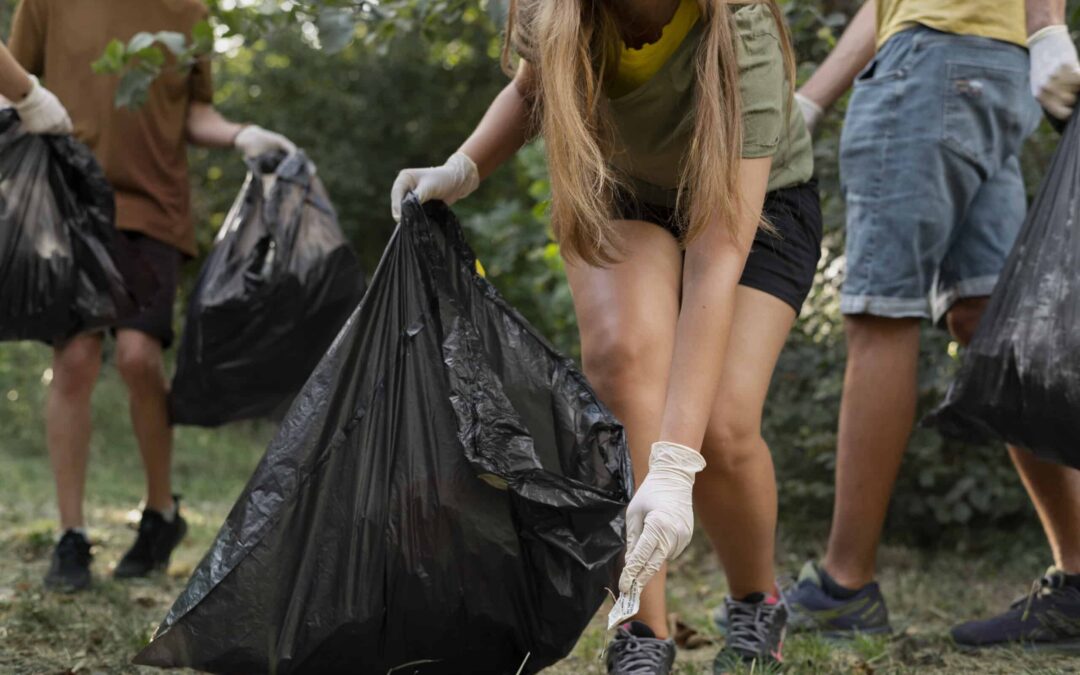The Time is Now: Taking Action for the Environment
The earth faces unprecedented environmental challenges. Climate change, pollution and deforestation are among the many problems that threaten our planet’s ecosystems. These environmental issues are causing monumental damage to our planet, and require urgent action. Through the contributions of individual citizens, politicians, and businesses, we can collectively make sustainable choices that can protect and preserve the earth for generations to come.
The Urgency of Environmental Action
Scientific evidence over the years has shown that global warming is a critical issue facing humanity. Climate change has caused extreme weather conditions, including droughts and heatwaves that have led to wildfires and crop failures. These extreme weather conditions have claimed lives, destroyed homes and damaged the environment. The continuous combustion of fossil fuels is causing greenhouse gases to build up in the atmosphere, and the resulting climate change is creating irreversible damage to the environment.
The human population is rapidly growing, and with it, our energy needs. An increase in energy consumption requires higher production and increased carbon dioxide emissions from power plants leading to environmental degradation. Businesses and individuals need to consider sustainability and adopt eco-friendly practices to reduce environmental damage.
Individual Efforts make a Difference
Individual efforts are crucial towards mitigating the effects of environmental degradation. Small efforts such as recycling, plant-based diets, and using public transport contribute significantly to environmental conservation. Switching from plastic to reusable products, and committing to reduce water and electricity consumption, greatly benefits the planet. Individuals should also prioritize actions that reduce waste and energy consumption such as planting trees, going paperless at work and at home, and reducing food waste.
The Role of Politics in Environmental Conservation
Government policies and regulations have a vital role towards environmental conservation. It is the responsibility of policy-makers to implement environmentally friendly policies that can mitigate environmental harm. Governments must enforce strict laws to penalize individuals and businesses that pollute the environment. The Paris Agreement, which was signed by over 195 countries, outlines the international community’s commitment to reducing carbon emissions, and reducing the impacts of climate change. It is imperative that governments at all levels take action to regulate and enforce the Paris Agreement.
Changing the Business Landscape for Environmental Conservation
Businesses have a significant role in reducing environmental damage. Corporate social responsibility and environmental sustainability should be a priority for all companies in an effort to minimize our carbon footprint. Companies should adopt eco-friendly policies, including renewable energy, recycling programs and supply chains that promote environmental conservation. Investing in technologies that minimize the effects of factory operations on the environment, and providing incentives for employees to engage in environmentally friendly activities are all actions that corporations can take to reduce their carbon footprint.
The Need for Collective Action
The environmental challenges that we face are daunting and require collective action. Sustainable environmental conservation practices must be prioritized by individuals, governments, and businesses worldwide, and effective measures should be taken towards reducing our carbon footprint. Collective action requires collaboration amongst all stakeholders, and this must be done through dialogue and constructive feedback.
The Power of Innovation in Environmental Conservation
Innovative technologies and sustainable approaches are critical in mitigating the effects of environmental pollution. The development of clean energy and alternative transportation remedies can help promote environmental conservation. Moreover, innovations in the agricultural sector, such as vertical farming, can promote eco-friendly practices and reduce environmental degradation. Clean energy, such as wind and solar, can replace fossil fuels and offer a new way to reduce the carbon footprint.
Conclusion
It is crucial that we act now on the environmental issues we face. We are at a critical point in history where we must take a stand against the damage done to our planet. Through collective action, sustainable innovation, and individual choices, we can take steps towards reducing our carbon footprint and protect the planet for generations to come. Environmental degradation affects all of us, and therefore, we must have a shared responsibility to work towards a solution. It is necessary for governments, businesses, and individuals to work together to take action against it. Let us act now, or pay the price in the future.
- Act Now or Lose Forever: The Devastating Impact of Species Extinction - 21 de junio de 2023
- Act now or watch them disappear: The urgent need for endangered species conservation - 21 de junio de 2023
- A Decadent Symphony for Your Taste Buds: Gastronomic Revolution Unleashed! - 18 de junio de 2023
